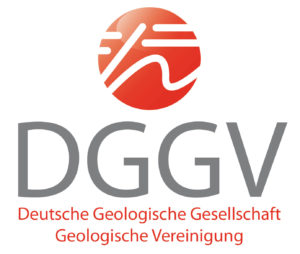12th ICCP Course: Dispersed Organic Matter Practical Course- Integrating transmitted and reflected light microscopy
| July 12, 2018 | Filled under Courses |
|
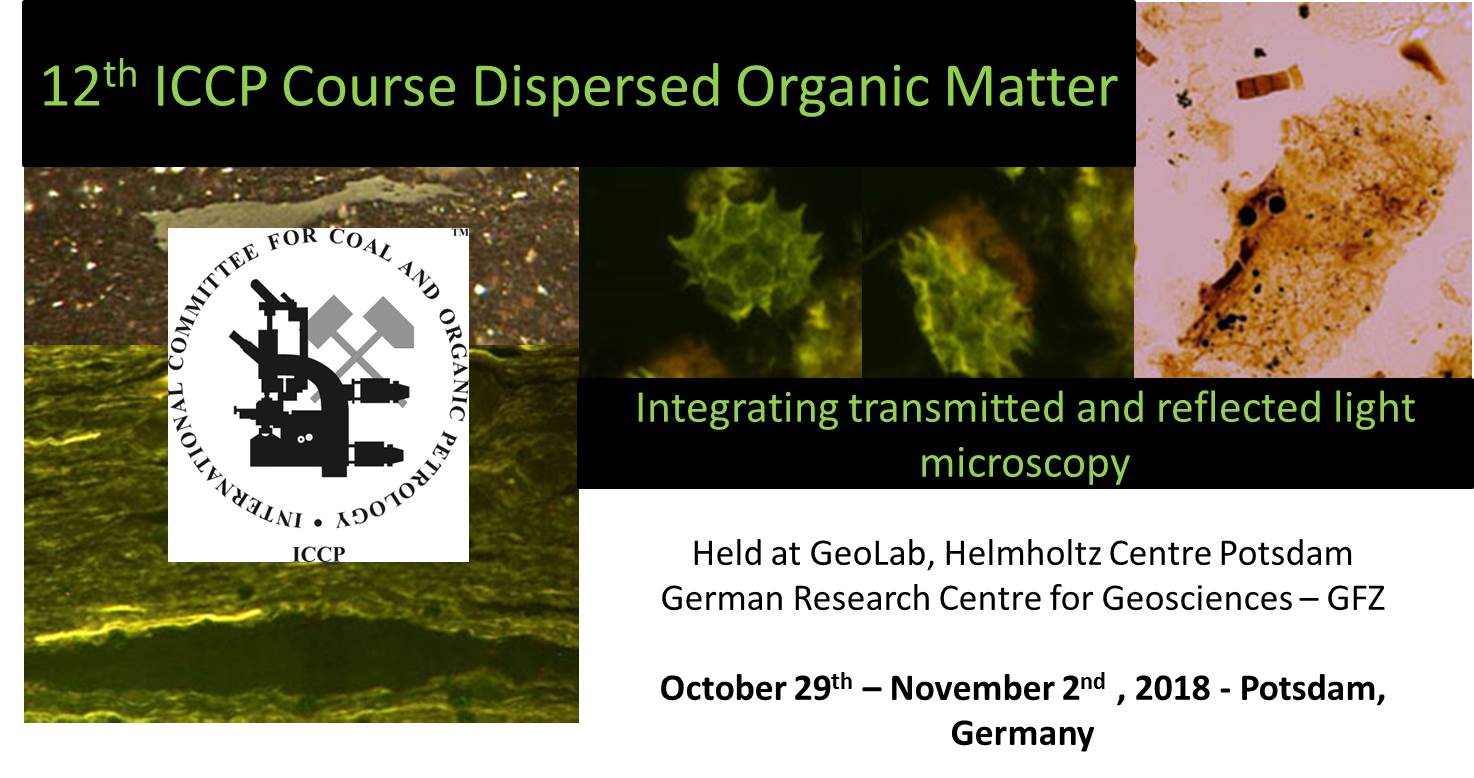
1. Introduction
The International Committee for Coal and Organic Petrology (ICCP), in conjunction with Geolab, DGGV (Deutsche Geologische Gesellschaft – Geologische Vereinigung e.V.), the Teichmüller Foundation and GFZ (the German Research Centre for Geosciences), is pleased to announce a training practical course in Dispersed Organic Matter to be held in Potsdam from 29th of October till 2nd of November 2018.
Instructors will be Prof. Joao Graciano Mendonca Filho, Universidade Federal do Rio de Janeiro, Brazil, and Dr. Angeles G. Borrego, Instituto Nacional del Carbón, CSIC, Oviedo, Spain. A Textbook will be available for the participants. Practical sessions will be hold using a microscope with image projection, set up for transmitted and reflected white light observation, as well as reflectance measurements (FOSSIL software). The microscope system will be provided by Hilgers Technisches Büro.
The course focuses on the Petrology of Dispersed Organic Matter, examined both in transmitted and incident light, with particular emphasis in practical exercises integrating the information from both observation modes. The course will cover identification of palynofacies components and macerals, as well as the procedures for the quantification of various components. Determination of source rock maturity, geochemical and optical parameters, identification of vitrinite and measurement of vitrinite reflectance will be covered. Difficulties and common mistakes will be discussed.
As theoretic background will be kept to a minimum, it is recommended having performed the Organic Petrology or Dispersed Organic Matter ICCP basic courses or previous experience in organic petrographic analysis. A training kit with the samples analysed in the course will be provided for the attendees to take home.
A Certificate of participation will be awarded to each person completing this course, but this does not include accreditation from the ICCP. Information for the ICCP Accreditation Program can be found at Accreditation.
2. Registration and fees
Registration includes tuition. Costs include course notes, lunches, coffee and farewell function. Printed notes will be available for the courses. Powerpoint presentations will be used for the lectures. Course notes will be distributed to each participant and a CD of the notes and Powerpoint presentations will be available. It is required the participants to bring along their own laptop.“FOSSIL -Student” program runs on all notebooks with operating system Windows XP to Windows 10, but does not run in Apple devices.
| Company / Professional | 1300 € |
| Government / Non-Profit | 700 € |
| Student | 250 € |
Cost for the course excludes travel, accommodation and meals except where stated. Costs include course notes, lunches and coffee, and course dinner.
Course language is English.
Space is limited and will be on a first come basis. A detailed course outline will become available soon at www.iccop.org.
Further information is available from:
Peter Crosdale at peter.crosdale@energyrc.com.au
3. Payments
Payment should be settled at the latest on 30th September, 2018. After registration in the course participants will receive, from ICCP’s Treasurer Mrs. Jennifer Pearson, a proforma invoice with the amount due and all details of bank account for bank transfer and/or for payment with credit card (only VISA and MASTERCARD).
4. Accommodation
Participants must make their own accommodation reservations directly.
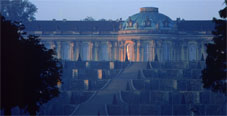
For hotels in Potsdam please visit:
https://www.potsdam.de/kategorie/hotels If you need further information please contact: Antje Treutler at treutler@gfz-potsdam.de
5. Venue
WIS – Wissenschaftsetage im Bildungsforum,
Room “Vollmer”
Am Kanal 47
14467 Potsdam
Germany
http://www.wis-potsdam.de/en/welcome-wis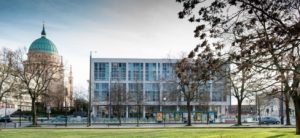
The WIS has a good connection to the railway service and to the international airports of Berlin. From Berlin there is an easy access by public transport. From the Potsdam-Main Railway Station (Hauptbahnhof) you can walk to the building in 10—15 minutes or take tram 93, 94 or 99 to station “Platz der Einheit/ Bildungsforum”.
6. Course outline
The course will meet daily from 9:00 a.m. until 6:00 p.m., with breaks for morning and afternoon tea, and lunch.
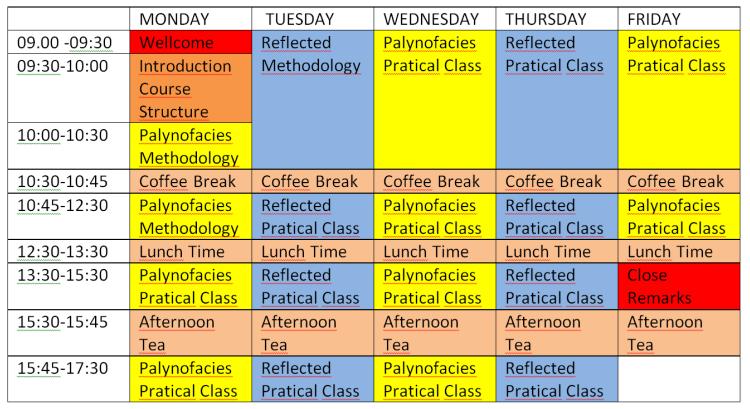
The following items will be covered in the course:
- Dispersed Organic Matter (DOM): Concepts and definitions, OM production, processes and sedimentation, OM evolution, physicochemical transformation during maturation.
- Transmitted and reflected light microscopy techniques (white and blue lights), sample preparation, modes of illumination, qualitative and quantitative procedures.
- Palynofacies. Identification and classification of components. Interpretation of results.
- Identification and quantification of macerals.
- Maturity of organic matter: SCI-Spore Colour Index; spectral fluorescence parameters. Vitrinite reflectance measurement. Identification of indigenous vitrinite. Interpretation of results.
- Case studies.
Emphasis will be given to practical exercises:
For Palynofacies exercises Samples from Marine, Transitional and Continental depositional environment with their typical palynomorphs assemblages will be analysed.
Reflected light classes: Samples of Low, médium and high rank will be considered. Special emphasis in the distinction between vitrinite-bitumen-inertinite in organic-rich samples and picking up the indigenous vitrinite population in marine samples will be put.
Practical sessions will be conducted using a microscope with image projection, equipped with the FOSSIL software for reflectance measurement. The microscope system will be provided by Hilgers Technisches Büro. The individual work of the practical sessions requiresthe participants’ laptop. Please remember that “FOSSIL -Student” program runs on all notebooks with operating system Windows XP to Windows 10, but does not run in Apple devices.
7. Trainers
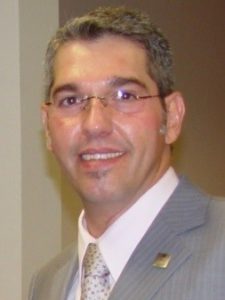
João Graciano Mendonça Filho
Dr. João Graciano Mendonça Filho has a Bachelor in Geology from Federal University of Paraná, Brazil (1989), Master in Organic Petrography and Geochemistry (Federal University of Rio Grande do Sul, Brazil, (1993) and a PhD in Organic Facies (Federal University of Rio Grande do Sul, Brazil, 1999). During his PhD Professor João Graciano was an exchange student at the Karls Eberhard Universität Tübingen, Germany and the Fossil Fuels and Environmental Geochemistry Postgraduate Institute, University of Newcastle, Newcastle upon Tyne, England. He is a Full Professor of the Department of Geology, Federal University of Rio de Janeiro (UFRJ) and currently he occupies the position of Dean at the Mathematical and Natural Sciences Center (CCMN/UFRJ). Professor João Graciano is coordinator of the Palynofacies and Organic Facies (LAFO) and Petroleum and Environmental Geochemistry (LAGEPA) Laboratories at UFRJ. Besides this, he also coordinates the research groups of the Petroleum Geochemistry and Environmental Organic Geochemistry and Palynofacies and Organic Facies at CNPq (National Council for Scientific and Technological Development), where he is holds a Level 1 Researcher status. He is also Advisor of several Bachelor, Master and PhD Students in Geology at UFRJ, and contributes to the Undergraduate Courses and Graduate Programs in Geology from others universities in Brazil and Portugal, working in Geosciences with an emphasis in Petroleum Geochemistry, Organic Petrology, Palynofacies, Organic Facies, and Environmental Organic Geochemistry. He is member of several scientific societies, among them, of ALAGO (Latin American Association of Organic Geochemistry) and ICCP (International Committee for Coal and Organic Petrology). Within the ICCP, he is Convener of Organic Matter Concentration and Palynofacies Working Group, and one of the Instructors of the ICCP Training Courses in Dispersed Organic Matter. Prof. João Graciano is author or co-author of a significant number of peer-reviewed papers, book chapters, as well as editor of Scientific Journals always focused on topics of geochemistry and organic petrology applied to fossil fuels exploration. In the last years he has received several international Awards recognizing his scientific and research work and contributions to the science, among them The Organic Petrology Award from ICCP in 2012.
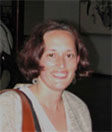
Angeles Borrego
Angeles Borrego
Angeles G. Borrego is Scientific Researcher at the Instituto Nacional del Carbón (INCAR-CSIC) in Oviedo, Spain. She got her Bachelor degree in Geology from the Complutense University of Madrid, in 1987 and the PhD from the University of Oviedo in Spain in 1992 after having performed short stays at the NRG on fossil fuels and environmental geochemistry in Newcastle upon Tyne (UK), and the University of Bergen (Norway). She worked for nearly three years at the Lehrstuhl from Erdöl und Kohle (RWTH Aachen), Germany with a Marie Curie postdoctoral fellowship. Her research has mainly focused on the study of oil shale and source rocks with special emphasis in the relationships between organic petrology and geochemistry, the petrographic characteristics of combustion chars and the behavior of macerals upon pyrolysis, and more recently on peat as a record of palaeo-environmental variability. Her research has been carried out within the framework of national and international projects and has yielded over 70 papers in peer reviewed journals. Her scientific achievements were recognized with the Organic Petrology Award from ICCP in 2008. Angeles has supervised a significant number of Bachelor, Master and PhD students and is also tutoring classes at the University of Oviedo. She has also taught organic petrology short-courses for coal and oil companies and at the Federal University of Rio Grande do Sul (Porto Alegre, Brazil), Universidad Pedagógica y Tecnológica de Colombia (Sogamoso) and Universidad Autonoma de Coahuila (Mexico) in addition to the ICCP courses on dispersed organic matter in 2014 and on Organic Petrology in 2016.

Practical session on petrographic techniques: Microscope system with the FOSSIL software for reflectance measurement, documentation and training will be provided by Hilgers Technisches Büro.
8. Disability-related needs
If you plan to attend the course and you have disability-related needs, please contact Antje Treutler at treutler@gfz-potsdam.de



